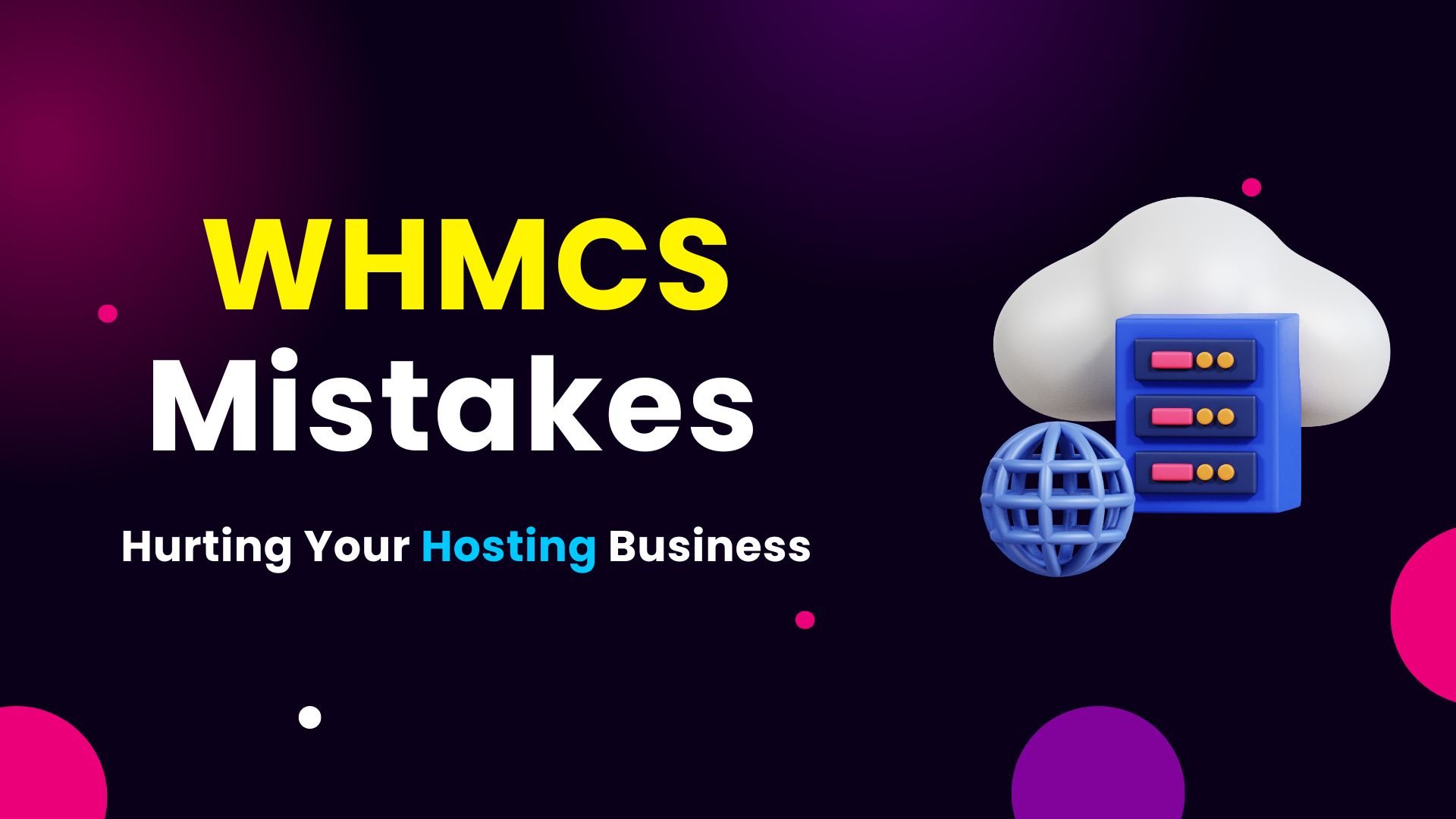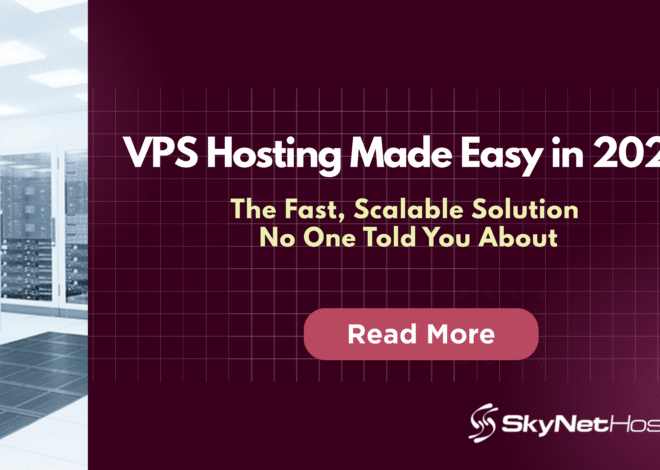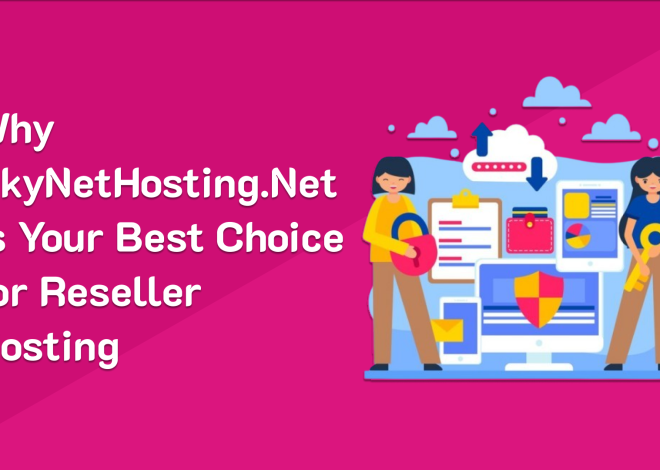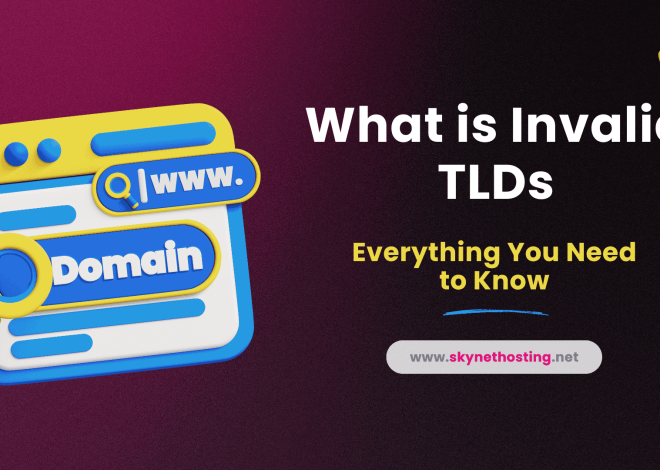
Avoid the Top WHMCS Mistakes Costing You Time and Money
TL;DR
- Creating custom modules incorrectly causes system errors and support floods; always use WHMCS’s Module Development Kit and test thoroughly.
- Modifying core WHMCS code breaks updates and stability; use hooks to customize without touching core files.
- Poor performance is common; optimize with caching, proper database indexing, increased PHP memory, and SSD storage.
- Integration errors with payment gateways, CRMs, or accounting can halt operations; follow guidelines and test all integrations well.
- Migrating without backups, testing in staging, or informing customers leads to failures; plan carefully and communicate clearly.
WHMCS (Web Host Manager Complete Solution) management poses significant challenges for many businesses in the web hosting industry. While it’s a powerful platform for automating billing and provisioning, improper use can quickly drain your time and resources.
This guide breaks down the top five WHMCS mistakes and provides practical solutions to avoid them.
1. Creating Custom Modules Incorrectly
Custom modules extend WHMCS capabilities, allowing you to tailor the platform to your specific needs. However, they’re often a source of frustration when implemented incorrectly.
Key Issues
Poorly configured modules cause system errors and integration problems, resulting in a flood of support tickets and frustrated customers.
A 2023 WHMCS User Survey revealed that 62% of WHMCS users struggle with custom module implementation. This statistic highlights the widespread nature of this issue across the industry.
Solution
Use WHMCS’s Module Development Kit (MDK) for standardized module development. The MDK provides a structured framework, reducing the likelihood of errors and ensuring compatibility with future WHMCS updates.
Best Practices:
- Always test custom modules in a staging environment before live deployment.
- Document your custom module thoroughly, including its purpose, functions, and any dependencies.
- Regularly review and update your custom modules to ensure they remain compatible with the latest WHMCS version.
Technical Tip: When developing custom modules, use WHMCS’s built-in debugging tools to identify and resolve issues quickly. Enable debug logging in your WHMCS admin area under Setup > General Settings > Other.
2. Modifying WHMCS Core Code Instead of Using Hooks
The temptation to directly modify WHMCS core code for quick fixes or specific functionality is strong, but it’s a path fraught with long-term consequences.
Key Issues
Core code modifications prevent easy WHMCS updates. When you update WHMCS, your customizations may be overwritten, or worse, your entire system could break.
A Hosting Industry Report from 2024 found that a staggering 78% of WHMCS-related support tickets stem from core code modifications. This statistic underscores the severity of this common mistake.
Solution
Use hooks instead of modifying core code. WHMCS hooks allow you to execute custom code at various points in the system’s processes without touching the core files.
Benefits of using hooks:
- Maintain compatibility with future WHMCS updates
- Easier troubleshooting and maintenance
- Improved system stability
Implementation Guide:
- Identify the appropriate hook for your needs by consulting the WHMCS Hook Documentation.
- Create a new file for your hook in the /includes/hooks/ directory.
- Write your custom code within the hook file.
- Test thoroughly in a staging environment before deploying to production.
3. Inefficient WHMCS Performance Tuning
Slow performance is one of the most common complaints about WHMCS installations. However, the issue often lies in configuration and resource allocation rather than the software itself.
Pain Point
Sluggish WHMCS systems frustrate customers, increasing wait times and potentially reducing sales. Slow loading times can also negatively impact your search engine rankings.
According to a WHMCS Performance Benchmark study in 2023, optimized WHMCS installations show a 40% improvement in page load times compared to default configurations.
Solution
Optimize your server settings and WHMCS configuration for peak performance.
Performance Optimization Steps:
- Use caching options like Memcached or Redis to reduce database load.
- Ensure proper MySQL database indexing for faster queries.
- Increase PHP memory limits to handle larger workloads more efficiently.
- Implement a content delivery network (CDN) for static assets.
- Regularly prune old data and optimize database tables.
Technical Tip: Use the MySQL EXPLAIN statement to analyze and optimize your database queries. This can help identify slow queries that are bottlenecking your system.
Server Configuration Recommendations:
- Allocate at least 2GB of RAM for WHMCS processes
- Use SSD storage for improved I/O performance
- Configure PHP opcache for bytecode caching
- Failure to Properly Integrate WHMCS with Other Systems
4. WHMCS Integration Pitfalls
WHMCS serves as a central hub for many businesses, integrating with various systems like payment gateways, CRMs, and accounting software. Improper integration can lead to severe operational issues.
Solution
Follow WHMCS integration guidelines carefully and thoroughly test all integrations before deployment.
Key Issues
Failed integrations cause system downtimes, payment processing delays, or inaccurate customer data, costing your business time and money.
A Payment Gateway Integration Study from 2024 found that proper WHMCS integrations reduce payment processing errors by up to 35%.Solution
Follow WHMCS integration guidelines carefully and thoroughly test all integrations before deployment.
Integration Best Practices:
- Use WHMCS’s official API for robust and stable connections
- Implement error logging and monitoring for all integrations
- Regularly update and test integrations, especially after WHMCS updates
- Use sandbox environments provided by payment gateways for testing
Integration Checklist:
- Document all required data points for the integration
- Set up error notifications to alert you of any issues
- Implement data validation on both ends of the integration
- Create fallback processes for critical functions in case of integration failure
- Ignoring Security Best Practices
5. Overlooked WHMCS Security Risks
WHMCS stores sensitive customer and business data, making it an attractive target for cybercriminals. Many businesses overlook security, assuming that out-of-the-box WHMCS settings are sufficient.
Key Issues
Security breaches can result in financial losses, customer distrust, and legal consequences, especially if sensitive data is compromised.
The Cybersecurity in Web Hosting Report (2024) states that implementing recommended security measures reduces the risk of data breaches by 70%.
Solution
Implement robust security practices and regularly audit your WHMCS installation.
Essential Security Measures:
- Enable two-factor authentication (2FA) for all admin accounts
- Keep WHMCS updated with the latest security patches
- Regularly change API keys and admin credentials
- Set up firewalls and limit access to your WHMCS admin area
- Use SSL/TLS encryption for all communications
- Implement IP blocking for repeated failed login attempts
Advanced Security Tips:
- Use a Web Application Firewall (WAF) to protect against common web attacks
- Implement regular security scans using tools like Imunify360
- Set up intrusion detection and prevention systems (IDS/IPS)
- Educate your staff on security best practices and phishing awareness
6. Common Pitfalls When Migrating to WHMCS
Migrating to WHMCS is a complex process that requires careful planning and execution. A Web Hosting Migration Study from 2023 found that 45% of WHMCS migrations face at least one major issue. Here are the common mistakes to avoid:
- Not backing up data before migration.
- Always create comprehensive backups of your current system, including databases, configuration files, and custom code.
- Failing to test in a staging environment.
- Set up a replica of your production environment and perform a full migration test before attempting the live migration.
- Incorrect database configuration updates.
- Ensure all database settings are correctly updated in the WHMCS configuration file (configuration.php).
- Lack of customer communication about the migration
- Inform your clients well in advance about the migration, potential downtime, and any changes they might experience.
- Overlooking customization settings
- Document all customizations in your current system and plan for their implementation in WHMCS.
Migration Checklist
- Create a detailed migration plan with timelines
- Identify all data that needs to be migrated (clients, invoices, tickets, etc.)
- Map out data fields between your old system and WHMCS
- Plan for potential downtime and schedule the migration during off-peak hours
- Have a rollback plan in case of major issues
Troubleshooting WHMCS Like a Pro
Even with careful planning and implementation, issues can arise. Here are some quick troubleshooting tips for common WHMCS problems:
- WHMCS Login Issues:
- Clear browser cache and cookies
- Check if cookies are enabled in the browser
- Verify SSL certificate installation and expiration
- Check for any .htaccess rules that might be blocking access
Cron Job Errors
- Verify cron job settings in cPanel or your server management panel
- Check email notifications for detailed error logs
- Ensure the cron job has the necessary permissions to execute
- Manually run the cron job to see if it produces any errors
Payment Gateway Errors
- Confirm that your payment gateway’s API credentials are up to date
- Check for any recent changes in the gateway’s API documentation
- Verify SSL certificate validity, as many gateways require a secure connection
- Test transactions in sandbox mode before going live
Email Delivery Issues
- Check SMTP settings in WHMCS configuration
- Verify SPF and DKIM records for your domain
- Use email delivery services like MailChannels for improved deliverability
- Monitor your IP reputation using tools like MXToolbox
Conclusion
If you’re tired of struggling with your current WHMCS setup, SkyNetHosting.Net’s Corporate Reseller Plan offers a comprehensive solution to streamline your business operations. For just $9.95 in the first month (normally $39.95/month), you get:
- 1TB NVMe SSD Storage
- 25TB Premium Bandwidth
- 100 cPanel Accounts
- FREE WHMCS License
- LiteSpeed Webserver
- MailChannels Cloud Email
- 50% OFF on VPS and Servers
This plan provides ample resources and the necessary tools to manage your web hosting business efficiently. The inclusion of a free WHMCS license alone can save you hundreds of dollars annually.
By leveraging LiteSpeed Webserver technology, you can expect significant performance improvements over traditional Apache setups. The MailChannels Cloud Email service ensures high deliverability rates for your transactional emails, a critical component of any hosting business.
Managing WHMCS effectively requires attention to detail, adherence to best practices, and a proactive approach to potential issues. By avoiding these common mistakes and implementing the suggested solutions, you can significantly improve your WHMCS experience, reduce operational headaches, and provide better service to your customers.
Remember to stay updated with the latest WHMCS releases and industry best practices.
Regular training for your team and ongoing system audits will help ensure that your WHMCS installation remains a powerful asset for your business rather than a source of frustration.
FAQs
Why do custom module mistakes break WHMCS?
Why shouldn’t you modify WHMCS core code?
How can you optimize WHMCS performance?
What causes integration failures in WHMCS?
How can you secure your WHMCS installation?
Enable two-factor authentication, keep WHMCS updated, use SSL encryption, activate firewalls, and restrict admin access. Regular audits and WAFs can reduce breach risks by up to 70%.



